The 2024 RBAs celebration of the UN Day for South-South Cooperation showcased the collaboration between Brazil and the RBAs as a powerful example of a robust and innovative model of international collaboration focused on poverty alleviation, nutrition, and food security.
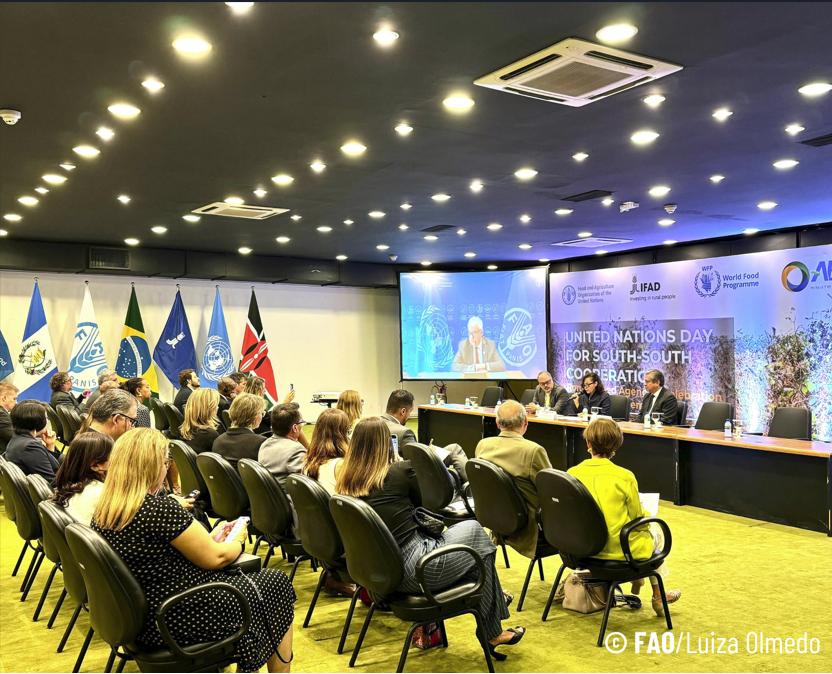
The UN Day for South-South Cooperation, celebrated annually on September 12, highlights the importance of partnerships developed among countries in the Global South. The Rome-based Agencies (RBAs) of the United Nations—the Food and Agriculture Organization (FAO), the International Fund for Agricultural Development (IFAD), and the World Food Programme (WFP)—have met this week in Brazil, under the aegis of the Brazilian Cooperation Agency (ABC), to reflect on this agenda.
Trilateral South-South Cooperation (TSSC), promoted by the RBAs together with developing countries, is based on the sharing of knowledge, experiences, technologies, and resources. Respecting the principles of national sovereignty, equality, and non-conditionality, the agencies act as catalysts to unite the synergies, solutions, and skills of Global South countries. This collaborative effort contributes to advancing the Sustainable Development Goals (SDGs), especially SDG 1 (No Poverty), SDG 2 (Zero Hunger) and SDG 17 (Partnerships).
To celebrate the evolution of these partnerships, Brazil, which is a global reference in South-South Cooperation, hosted the celebration on September 10 in the capital, Brasília. The event, organized under the theme “Global partners, local actions: Strengthening nutrition and food security through Trilateral South-South Cooperation,” reaffirmed the collaboration between the United Nations agencies and the Brazilian Government.
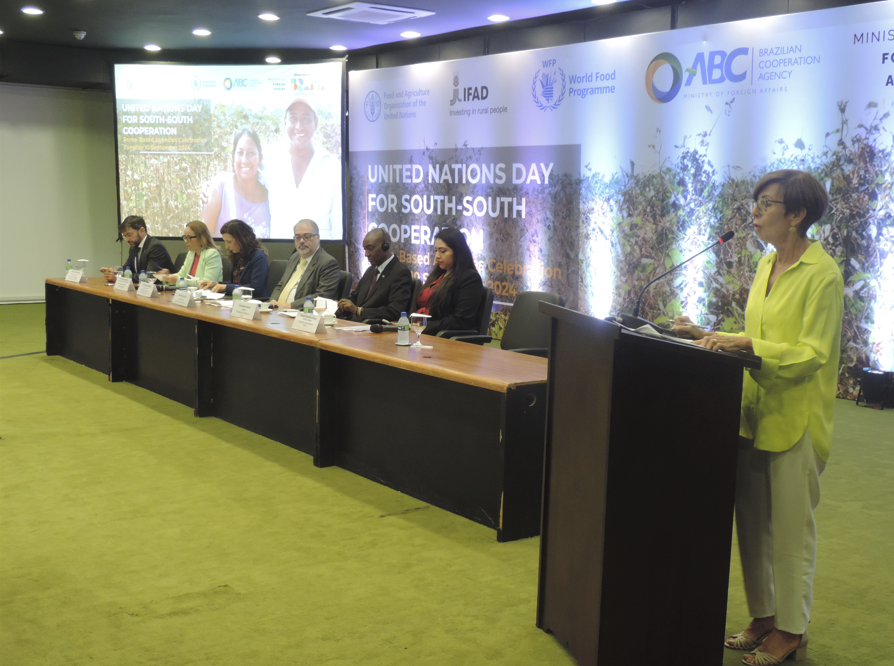
Mario Lubetkin, Assistant Director-General and Regional Representative of FAO for Latin America and the Caribbean, who opened the event, highlighted Brazil role in South-South and Triangular Cooperation, that plays a pivotal role in global agricultural development, driving the transformation of agrifood systems and responding to the need for sustainable solutions.
“Collaboration between Rome-based agencies is essential to support countries in reducing global hunger and poverty. Brazil has been a key force in promoting regional cooperation in Latin America and the Caribbean, strengthening ties and fostering a unified bloc representing the Global South. This leadership is exemplified by the Alliance Against Hunger, launched during its G20 presidency, which has played a critical role in addressing food insecurity and enhancing regional efforts to combat hunger”, remarked Lubetkin.
Ms. Dima Al-Khatib, Director of the United Nations Office for South-South Cooperation (UNOSSC), also reflected on the remarkable progress made through this cooperation model.
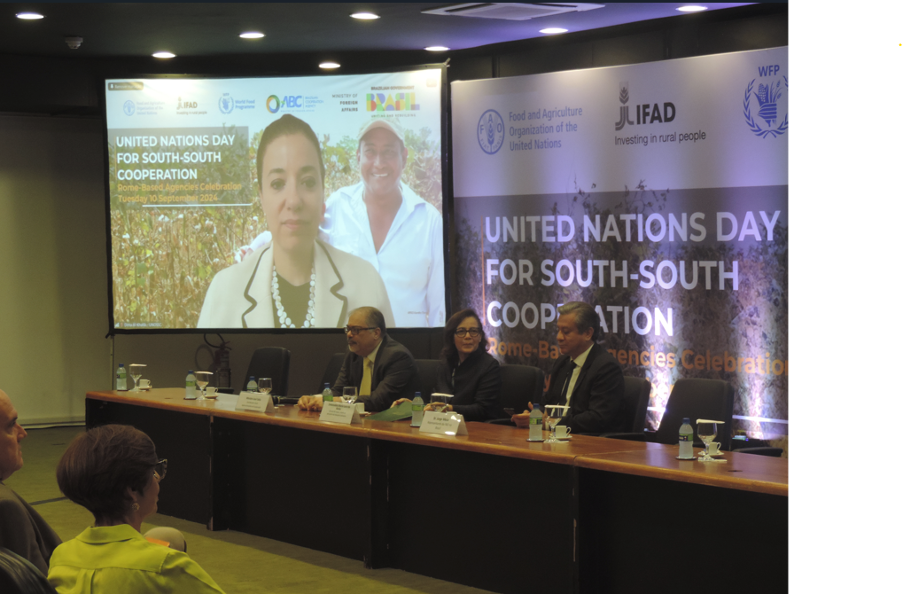
She stated, “Across the developing world, we are witnessing remarkable strides in resilience building, innovation, and collaboration. These achievements demonstrate that by mobilizing international solidarity and forging global partnerships through South-South and triangular cooperation, we can accelerate the achievement of the SDGs.”
Ambassador Maria Laura da Rocha, Acting Minister of Foreign Affairs of Brazil, highlighted that Brazilian South-South Cooperation has delivered concrete results due to practices that emphasize local ownership of cooperation initiatives, the strengthening of capacities on the ground, and the promotion of structural advances in sustainable development. “Brazilian South-South cooperation, across all the areas in which it operates, is characterized by dialogue and shared management between partners, with the direct and active involvement of cooperating institutions throughout the process”, she explained.
The celebration brought together key representatives from the United Nations, Brazilian government institutions, the Embassies of Kenya and Guatemala to Brazil, who expressed their willingness to strengthen the participation of their countries in new South-South Cooperation initiatives.
The participants reflected on 15 years of successful collaboration between Brazil and the agencies and on the prospects for building new partnerships in the future, focusing on School Feeding and Family Farming.
According to Mr Arnoud Hameleers, IFAD’s Country Director for Brazil and Head of the South-South Cooperation and Knowledge Centre, the theme selected for the celebration is not merely a slogan but a call to action. A call to deepen the partnerships that connect continents, organizations, and, most importantly, the people we serve. He added that “the success of the programme will demonstrate that when we mobilize political will, invest in people, and strengthen local systems, we can nourish entire generations.”
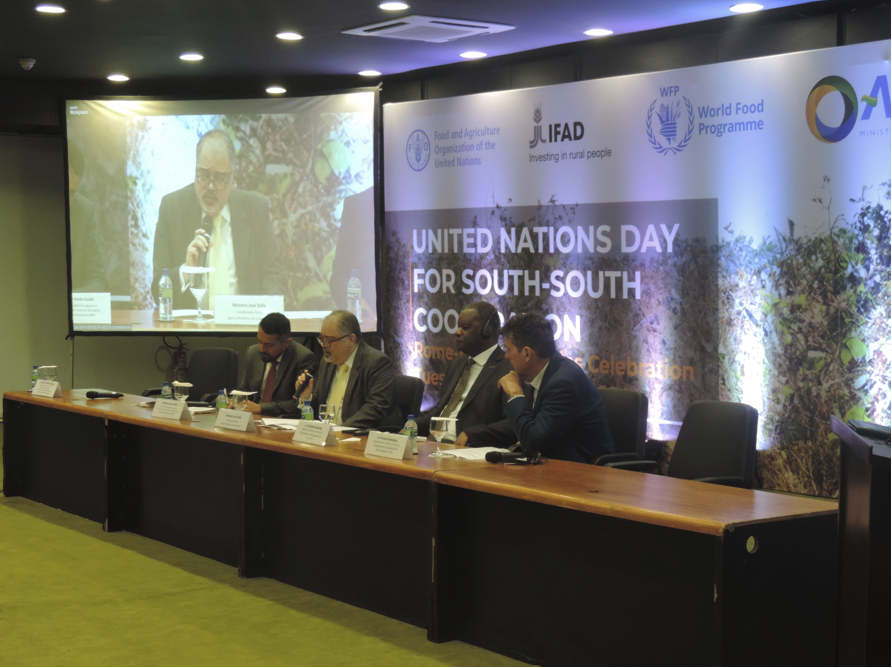
Mr Stanlake Samkange, Director of the Multilateral and Programme Country Partnership Division of WFP, indicated that “Since the establishment of the WFP Centre of Excellence Against Hunger in Brasília in 2011, it has enabled more than 70 countries to improve and expand their national home-grown school feeding programmes by learning from Brazil’s experience and expertise. This successful partnership has also inspired other countries, to set up similar mechanisms to foster South-South Cooperation.”
“The Joint Programme on school feeding and family farming that today marks a critical milestone in Brazil’s collaboration with the UN Rome Based Agencies, establishing a new working modality to improve efficiency and deliver enhanced impacts. Not only will the Programme have a lasting impact in the pilot countries, Kenya and Guatemala, but the lessons learned can help further expand this Programme to more countries” he added.
Among the guests were the president of the National Fund for Educational Development (FNDE), Fernanda Pacobahyba, the Executive Secretary of the Ministry of Agrarian Development (MDA), Fernanda Machiavelli, and the Special Advisor for International Affairs, Ministry of Social Development (MDS) of Brazil, Renato Domith Godinho.
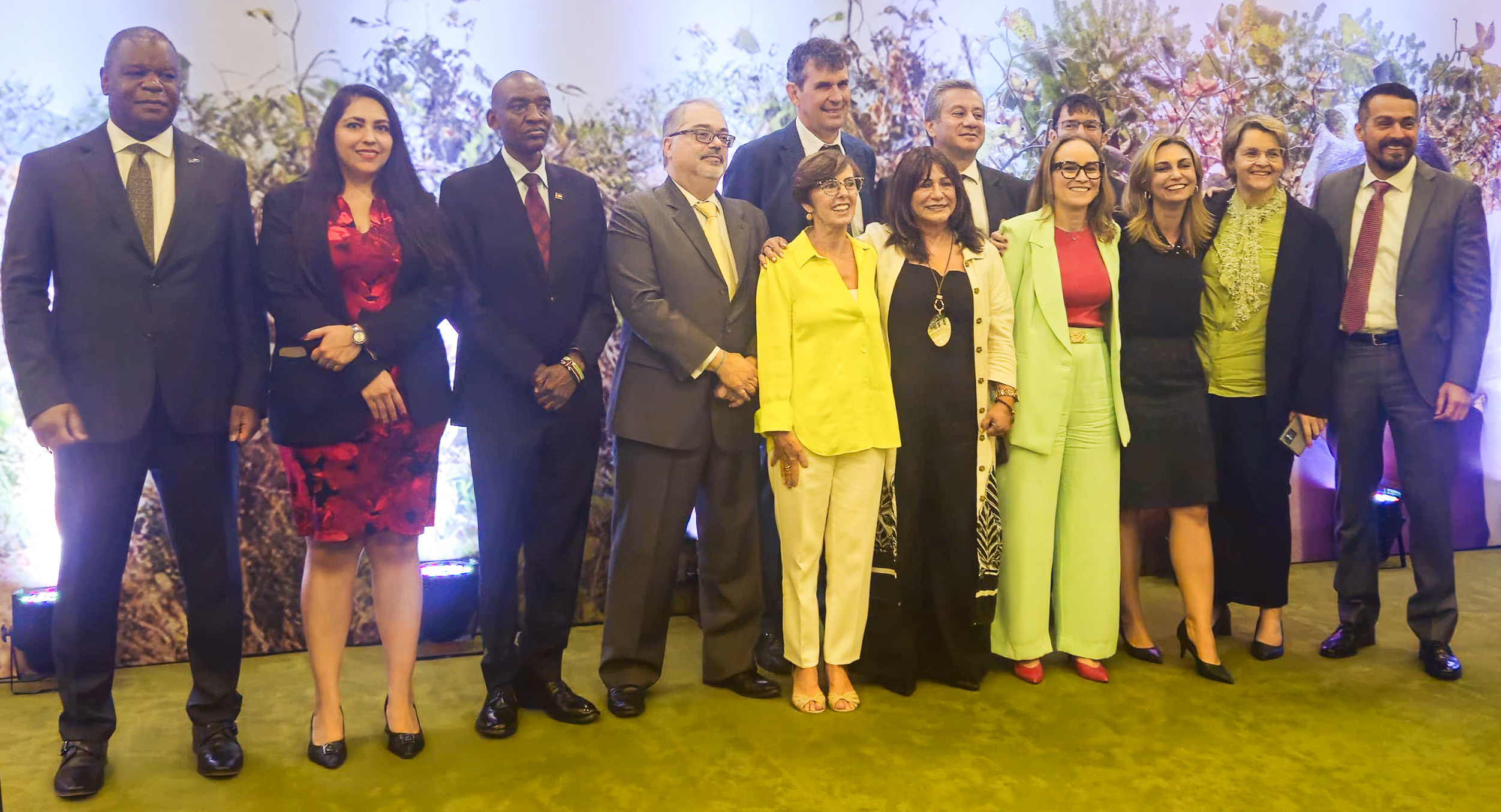
The 2024 RBA celebration of the UN Day for South-South Cooperation not only commemorated past achievements but also advanced shared strategic commitments, such as the potential RBAs/ABC joint programme to support school feeding and family farming national programmes. It demonstrated a robust and innovative model of international collaboration focused on poverty alleviation, nutrition, and food security.
The collaboration between Brazil and the RBAs serves as a powerful example of how Trilateral South-South Cooperation can create synergies that benefit both education and local agriculture, ultimately strengthening national capacities and driving sustainable development across the Global South.




